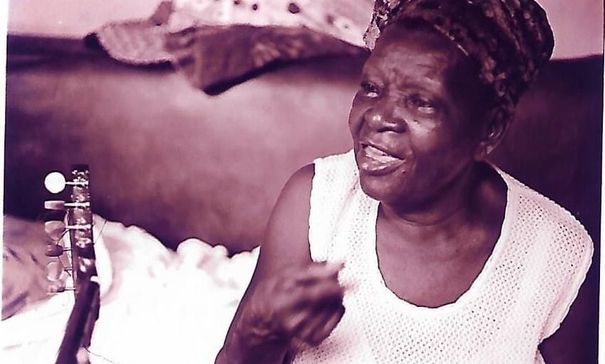Clementina: a way back
Leonel Matusse Jr.

"Clementina de Jesus is, anthropologically, the link between Brazil and its African ancestry", it is stated, at a given moment, in the documentary by Ana Rieper. It seems that it is during this testimony that the direction for the film is found, a film about the life of one of Brazilian music’s most eloquent voices.
In the singer’s speeches, compiled from a wide range of archival footage, it is clear that the performer has inherited from her grandmother the appetite for music, meaning the continuation of a multigenerational, in this case, oral tradition. One of the evidences of a spoken heritage is that the repertoire consists of themes that evokes their experiences and that of the people in their environment. These are improvisations similar to those of women in southern Mozambique, in family ceremonies where after cooking they join together to sing improvised songs, conforming to traditional melodies.
The drumbeat in Clementina's songs testify to this legacy, as traditional African dances, such as Zoré, Mapiko, Xingomane, in its vast majority share this as a common element. And this awareness is present in the carefulness of translating the term Ngoma, present in verses of her songbook, which in languages such as Bitonga, Changana and others from southern Mozambique and of the Bantu group, in general, actually means drumbeat. While explaining that "Bangalê", one of Clementina's themes, is a reference to the city of Benguela in Angola, and while mentioning Mozambique and Zimbabwe, the film takes the viewer to the singer’s place of origin and demonstrates that the oral transmission of cultural heritage is the bridge that keeps them connected to the past.
It is interesting how the documentary’s discourse is constructed, exploring the multifaceted Clementina, ultimately achieving the effect of humanizing the artist. The image of artists in similar projects tends to be elevated to level of a divinity, ignoring their ordinariness. The inclusion of interviews that cover her family and friends enriches even more the information shared about the singer. "Clementina" is a historical retrieval and at the same time a profoundly current film, if we are to consider that Brazil is now experiencing the effervescence of the black movement, which has among its main demands a solution to the absence of representation and marginalization of its legacy.

